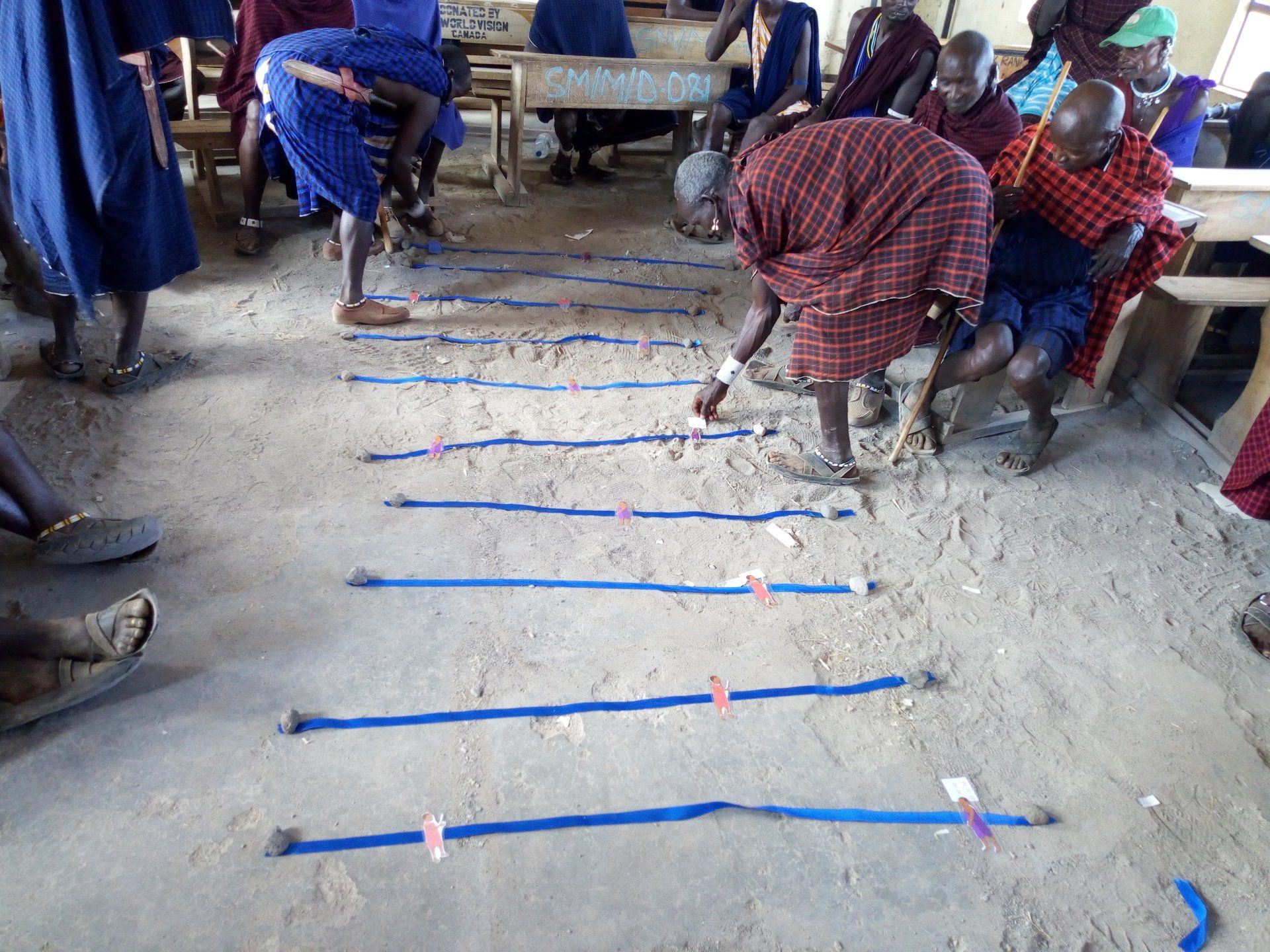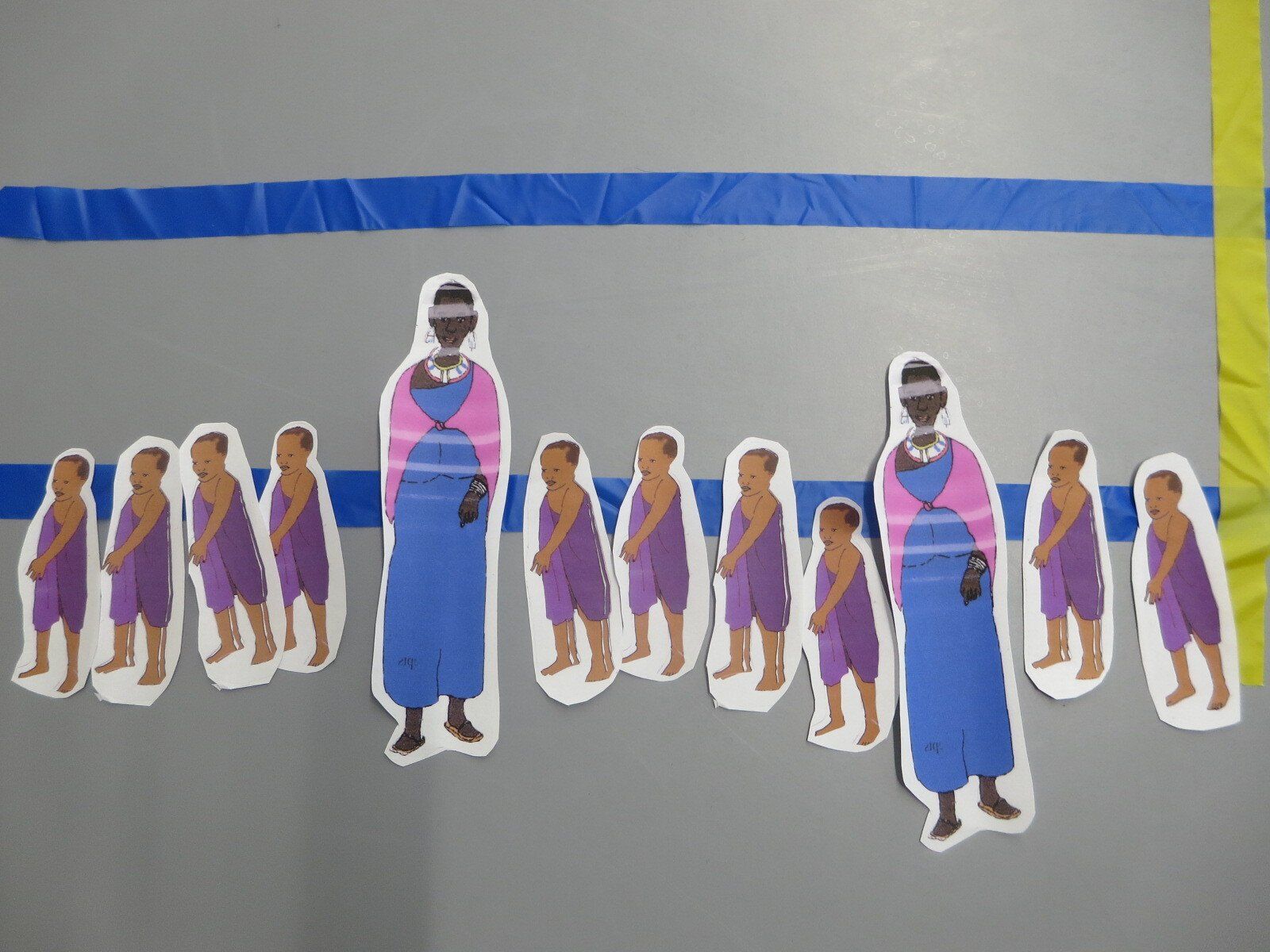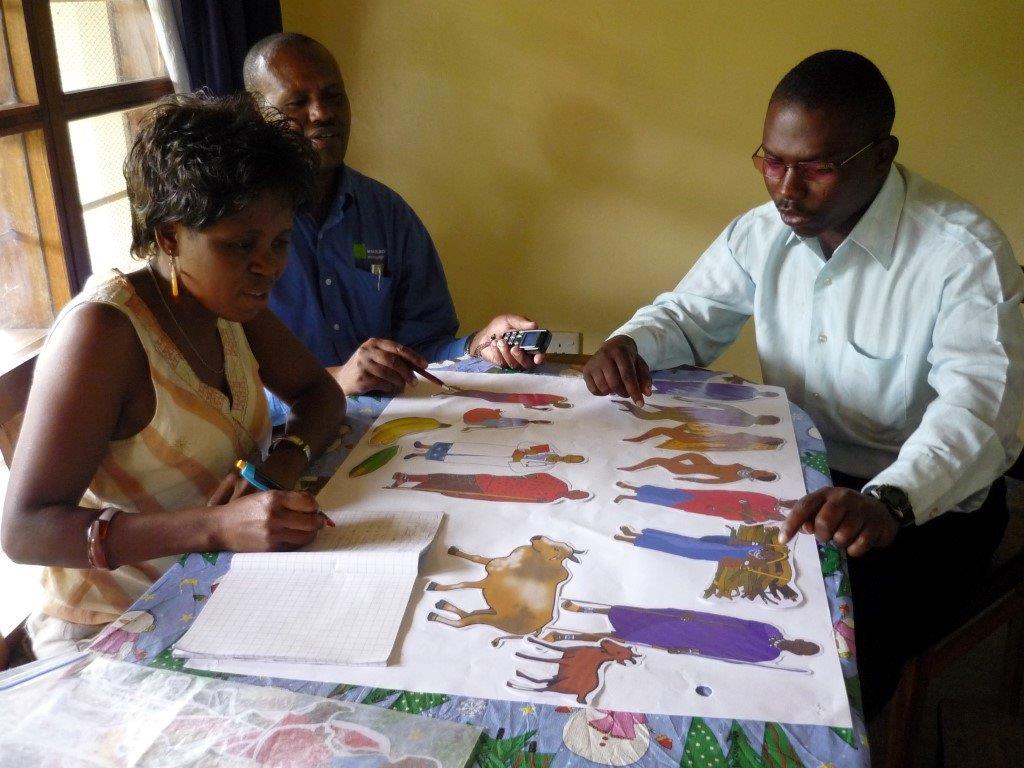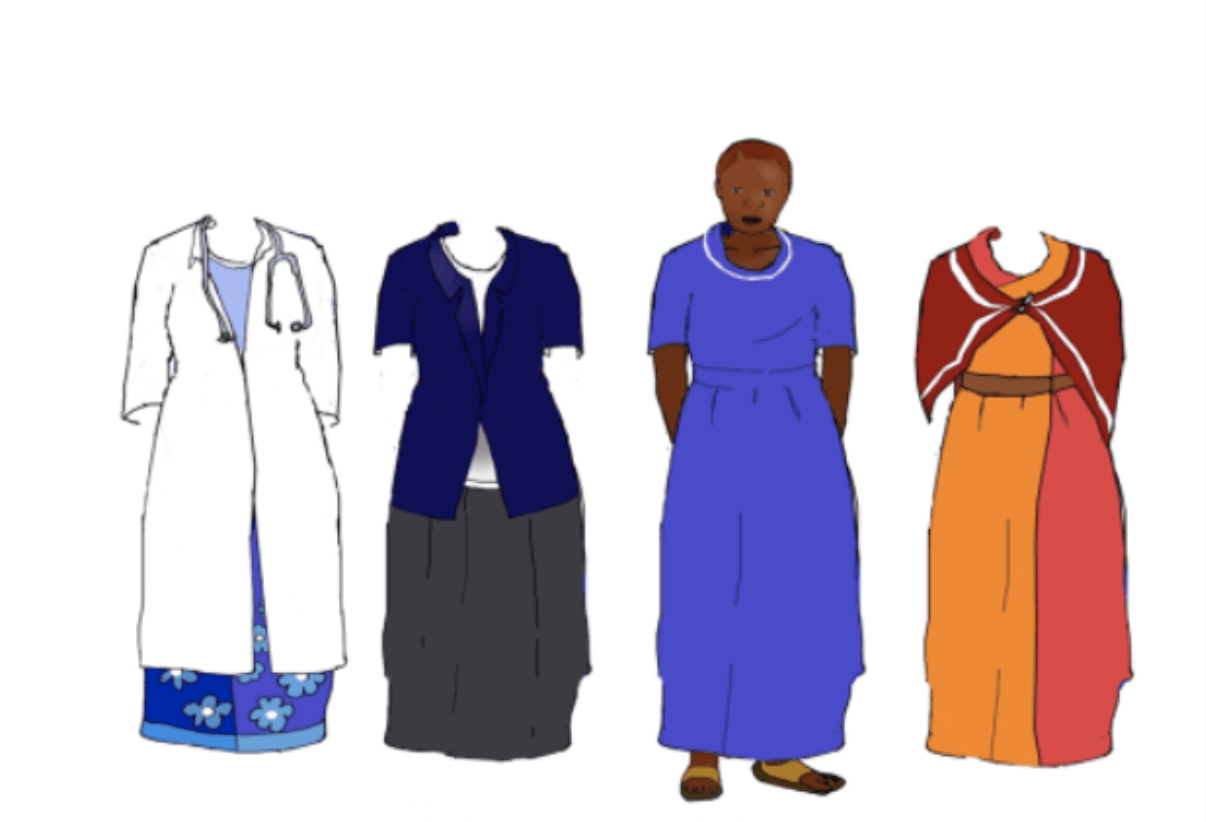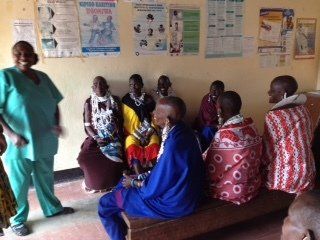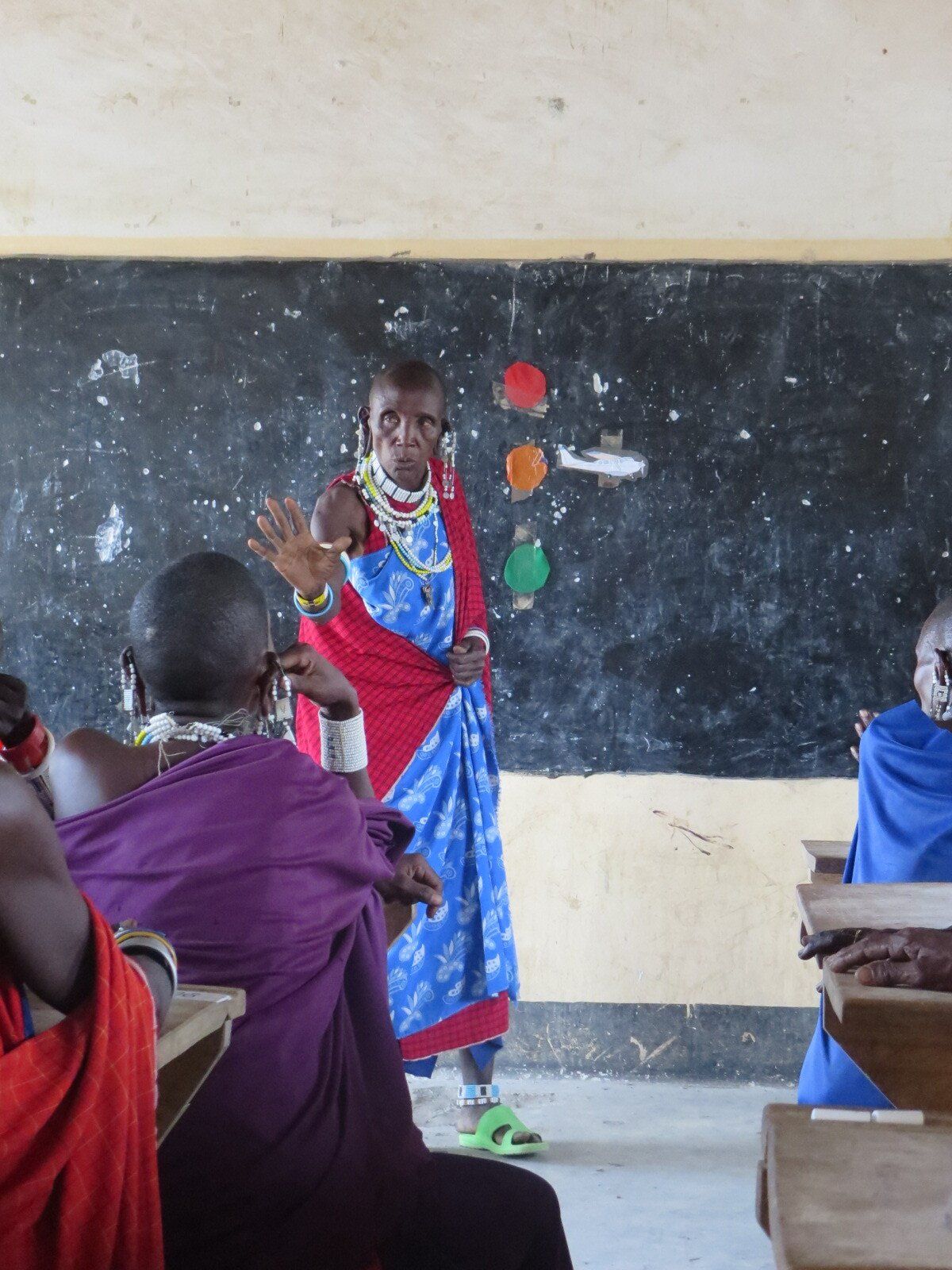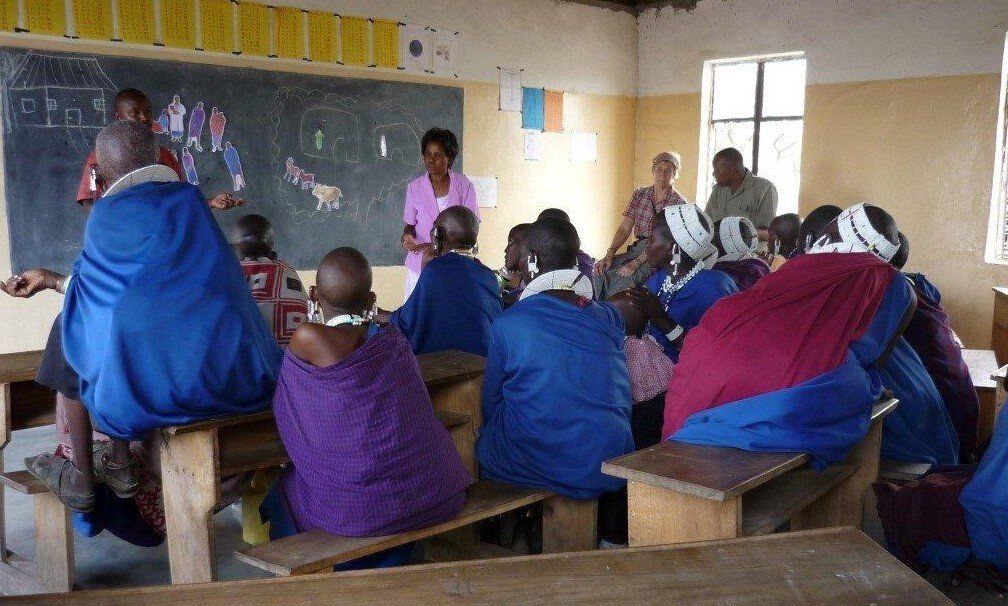Health Education
Health Education
The mortality rate has been reduced [through NHC education] and people are now aware of family planning” – community member, Magadini Village
Following up from the initial intervention, we found men curious and open to talking about maternal and reproductive health, including breast feeding, sexual questions, and increased concern about the impacts of STDs on women. We have worked with the District of Longido and the Flying Medical Service to ensure that contraceptive methods are available, including injectables, pills and IUDs. We would like to work further with TBAs and teachers to provide contraceptive counseling to all students, especially primary school girls who are matriculating to secondary education. Tubal litigation for women who no longer want children or who have been advised against it for their health can receive this care at Maternity Africa.
Family Planning Intervention and Contraceptive Access
Men and women in both communities expressed to us a desire to learn about and access family planning. In an initial assessment both sexes expressed fears, concerns and lack of knowledge about contraceptive methods, as well as fear of social reprobation. Men acknowledged that maternal mortality rates were too high and that children’s health also suffered if births were not adequately spaced. They knew that the 3-6 year old cohort was especially vulnerable to malnutrition and illnesses associated with malnutrition. We therefore approached our family planning initiative from an economic perspective, looking at the cost of raising a child. We also asked men to consider alternative futures for their girl children, including education and professional lives.
Following up from the initial intervention, we found men curious and open to talking about maternal and reproductive health, including breast feeding, sexual questions, and increased concern about the impacts of STDs on women. We have worked with the District of Longido and the Flying Medical Service to ensure that contraceptive methods are available, including injectables, pills and IUDs. We would like to work further with TBAs and teachers to provide contraceptive counseling to all students, especially primary school girls who are matriculating to secondary education. Tubal litigation for women who no longer want children or who have been advised against it for their health can receive this care at Maternity Africa.
Family Planning Intervention and Contraceptive Access
Men and women in both communities expressed to us a desire to learn about and access family planning. In an initial assessment both sexes expressed fears, concerns and lack of knowledge about contraceptive methods, as well as fear of social reprobation. Men acknowledged that maternal mortality rates were too high and that
children’s health also suffered if births were not adequately spaced. They knew that the 3-6 year old cohort was especially vulnerable to malnutrition and illnesses associated with malnutrition. We therefore approached our family planning initiative from an economic perspective, looking at the cost of raising a child. We also asked men to
consider alternative futures for their girl children, including education and professional lives.
Traditional Birth Attendant Training
Embedded in their communities and responsible for 95%+ of all births, Traditional Birth Attendants (TBAs) are the frontline to maternal care in remote areas like Natron. We believe they are fundamental to reducing rural rates of maternal mortality and morbidity that may be as high as 2 women per 50. Pre eclampsia, haemorrhage, and post-partum infection appear the most common causes of death.
We identified key issues preventing improved maternal health:
- Traditional belief in starving and purging during pregnancy
- Poor obstetric skills and lack of hygiene
- Inability to detect pre-eclampsia in a timely way and effect evacuation for treatment
- Lack of access to primary care, including lack of funds/community support for timely evacuation and fear of unfamiliar/hostile hospital settings
- Lack of male support for STD prevention and treatment
- Lack of access to family planning education
Building on their established midwifery knowledge, we work with TBAs to improve their
skills, access to resources and quality of care, specifically:
- pre-natal nutrition and anaemia
- red-flagging pregnancies and births for evacuation to primary care
- hygiene, cord-cutting, natural placenta evacuation
- weak or premature babies
- Skin-to-skin “kangaroo” care
- Continuity of care in primary care settings
- Family planning, STD and Female Genital Mutilation
Traditional Birth Attendant Training
Embedded in their communities and responsible for 95%+ of all births, TBAs are the frontline to maternal care in remote areas like Natron. We believe they are fundamental to reducing rural rates of maternal mortality and morbidity that may be as high as 2 women per 50. Pre-eclampsia, hemorrhage, and post-partum infection appear the most
common causes of death.
We identified key issues preventing improved maternal health:
- Traditional belief in starving and purging during pregnancy
- Poor obstetric skills and lack of hygiene
- Inability to detect pre-eclampsia in a timely way and effect evacuation for treatment
- Lack of access to primary care, including lack of funds/community support for timely evacuation and fear of unfamiliar/hostile hospital settings
- Lack of male support for STD prevention and treatment
- Lack of access to family planning education
Material support to TBAs includes:
- Maternova Cradle devices (link to the site) for color-coded to detect increasing blood pressure
- Anemia testing kits to detect dangerously low hemoglobin
- Plastic aprons, gloves, torches and soap
In working respectful partnership with TBAs, we offer wider support for women’s health, including STD treatment and prevention, STD education for girls and boys, family planning for both men and women.
Building on their established midwifery knowledge, we work with TBAs to improve their
skills, access to resources and quality of care, specifically:
- pre-natal nutrition and anemia
- red-flagging pregnancies and births for evacuation to primary care
- hygiene, cord-cutting, natural placenta evacuation
- weak or premature babies
- Skin-to-skin “kangaroo” care
- Continuity of care in primary care settings
- Family planning, STD and Female Genital Mutilation
Reproductive Health Education
High rates of extremely transmissible Sexually Transmitted Diseases (STDs) plague Masai communities, and our most frequent request is for treatment. Treatment is almost meaningless without education focused on prevention. This is especially true for women, who have less access to medical treatment and little power to prevent their own infection from men. We also found poor comprehension of the complex medication regime, including not finishing the course or taking it all at once with a soda. Men acknowledged STDs were painful and led to urinary problems, but did not always consider the serious long-term impacts of infertility and cervical cancer for women. Our education has focused on helping communities understand the modes of transmission, promotion of condom use, and lessons in correct use of medications.
We intend to implement a Cervical Cancer Intervention in 2021.
STD Health Education
High rates of extremely transmissible STDs plague Masai communities, and our most frequent request is for treatment. Treatment is almost meaningless without education focused on prevention. This is especially true for women, who have less access to medical treatment and little power to prevent their own infection from men. We also found poor comprehension of the complex medication regime, including not finishing the course or taking it all at once with a soda. Men acknowledged STDs were painful and led to urinary problems, but did not always consider the serious long-term impacts of infertility and cervical cancer for women. Our education has focused on helping communities understand the modes of transmission, promotion of condom use, and lessons in correct use of medications.
We intend to implement a Cervical Cancer Intervention in 2021.
Annual Health Education Workshops
Since 2009, we have held workshops in both communities on general health topics such as treatment of diarrhoea and prevention of dehydration, treatment of burns, eye care, hygiene, anaemia, nutrition, rabies, sexual health for school children, how to take prescription medications correctly, the importance of childhood vaccines. Communities will often request new subjects or reviews of old ones. While we support active triage, we and the communities believe in the power of prevention. In particular, our modules on diarrhoea and prevention of dehydration have been crucial to saving lives.
Annual Health Education Workshops
Since 2009, we have held workshops in both communities on general health topics such as treatment of diarrhea and prevention of dehydration, treatment of burns, eye care, hygiene, anemia, nutrition, rabies, sexual health for school children, how to take prescription medications correctly, the importance of childhood vaccines. Communities will often request new subjects or reviews of old ones. While we support active triage, we and the communities believe in the power of prevention. In particular, our modules on diarrhea and prevention of dehydration have been crucial to saving lives.

